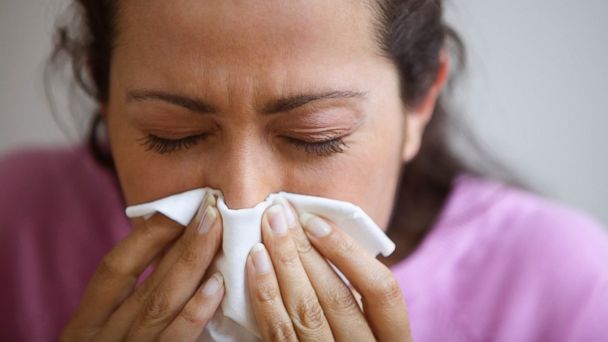Pay attention, hipsters: Wearing extra-tight pants can compress the nerves that run along the tops of your thighs, cutting off blood flow to your legs and leading to a condition called meralgia paresthetica.
Symptoms are numbness anywhere in your feet or legs and a "terrible burning sensation" in your outer thigh, according to a report from Johns Hopkins University. Buy some roomier pants, at least in the thigh region, the report advises.

Back and neck doctors have a technical name for it: wallet neuropathy. If you have a George Costanza-sized billfold jammed into your back pocket, sitting on that behemoth day in and day out twists your spine and pinches the sciatic nerves that run through your butt, resulting in painful conditions like sciatica and herniated disks.
Apart from ditching--or at least slimming down--your wallet,
lower back stretches can help counteract the damage, research suggests.

Freeing your feet is one of the principal joys of summer. But if you wear flimsy rubber flip-flops--the arch-less kind you pick up at the drug store for $5--your toes have to curl down in order to grip the sandals as you walk. That could lead to painful tendonitis in your feet, says a report from the American Podiatric Medical Association.
The way flip-flops change your natural walking gait can also cause knee and hip problems, according to an Auburn University study. Buy a sandal with a tight strap and some arch support to avoid those issues. (Recurring aches and pains could signal a more severe problem lurking within your body
Although water is the source and sustainer of all life--and comprises 66 percent of your body--drinking excess H2O dilutes the sodium, iron, and other essential minerals and nutrients in your blood. Dilute them too much, and you could develop a toxic condition called hyponatremia, which causes headaches, vomiting, confusion, or even death.
The condition is fairly rare, although it tends to turn up among water-chugging endurance athletes who are sweating out--but not replacing--lots of nutrients. According to a study in the New England Journal of Medicine, 13 percent of all Boston Marathon runners suffer from some stage of hyponatremia. Recovery drinks and most foods should help you avoid this condition, the NEJM study says.

A few years ago, a bunch of Iowa Hawkeye football players were hospitalized after a tough midwinter workout session. Most were suffering from a condition called rhabdomyolysis--brought about by severely overtaxing the muscles. Put simply, you can work your muscles so hard that the tissue breaks down and leaks protein into your bloodstream, which messes up your kidneys.
A university report on the Iowa incident pointed to excessive squat exercises just after winter break as the cause of the "rhabdo" outbreak. If your muscles feel like they're going to explode during a workout--and especially if you're out of shape or haven't trained much lately--listen to your body and take a break when your guns feel sapped, the Iowa report suggests.

Okay, one more sneezing story: A 38-year-old man fractured his larynx one night when he pinched his nose and closed his mouth while sneezing, according to a case report from Boston University.
This "closed-airway sneeze" created so much pressure in his throat that the man essentially blew a hole in his voice box--a life-threatening emergency, the study authors say. To avoid the same fate, keep at least one airway--mouth or nose--clear when you sneeze, the authors advise.


0 comments:
Post a Comment